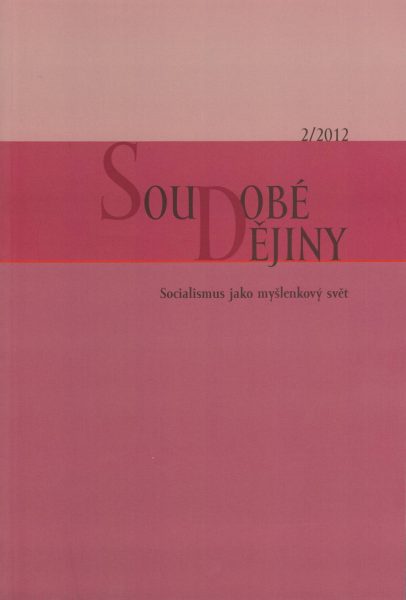Literární politika aneb Odpustek a heroizace místo mementa, Nad knihou Jaroslava Meda „Literární život ve stínu Mnichova“
Indulgence and Heroization Instead of Admonition: Thoughts on Jaroslav Med’s „Literární život ve stínu Mnichova“
Author(s): Jan RatajSubject(s): History
Published by: AV ČR - Akademie věd České republiky - Ústav pro soudobé dějiny
Summary/Abstract: This article, together with the following three of this section of the journal, comments on a recent work by the literary historian Jaroslav Med, Literární život ve stínu Mnichova (1938–1939) (Literary life in the shadow of the Munich Agreement, 1938–39), published by Academia in 2009. (In 2010, it ranked third in an annual Lidové noviny readers’ poll for the best book.) According to the author of this article, a strong point of Med’s book is its unusually refi ned style and the biographical portraits of the selected writers. Apart from that, however, the author fi nds little else to praise about the work. He considers Med’s conception of literary life misleading, since, instead of considering belles-lettres, Med discusses political journalism. The author also sees the work as having a hidden agenda, because, in his opinion, Med’s calling political works ‘literary’ is intended to absolve the authors of their role in the legitimation and building of the authoritarian régime of the Second Republic. Med, in his opinion, lacks the qualifi cations to write about history or political science in a way that would suffi ciently interpret the non-literary contexts of the period, and uses his interpretation to take issue with the nature of the Second Republic régime, which the author of this article considers to have been far-right authoritarian with a clear tendency to fascism, whereas Med tends to see it as an authoritarian or ‘strong’ democracy. Med’s nationally conservative normative perspective, according to Rataj, is also evident in the heavily biased critical assessment of the First Republic. Med’s book, according to him, is essentially an attempt to absolve, morally and politically, a group of Roman Catholic writers from their active support for the Second Republic régime, support that was actually conscious, intentional, and can be clearly demonstrated. With its apologist’s interpretation, the book offers little towards a more profound understanding of either the Second Republic or the ideas of Roman Catholic intellectuals in this period. It is, however, testimony to a pressing need to bolster conservative Roman Catholic myths in the historical consciousness today.
Journal: Soudobé Dějiny
- Issue Year: XIX/2012
- Issue No: 02
- Page Range: 276-291
- Page Count: 16
- Language: Czech

